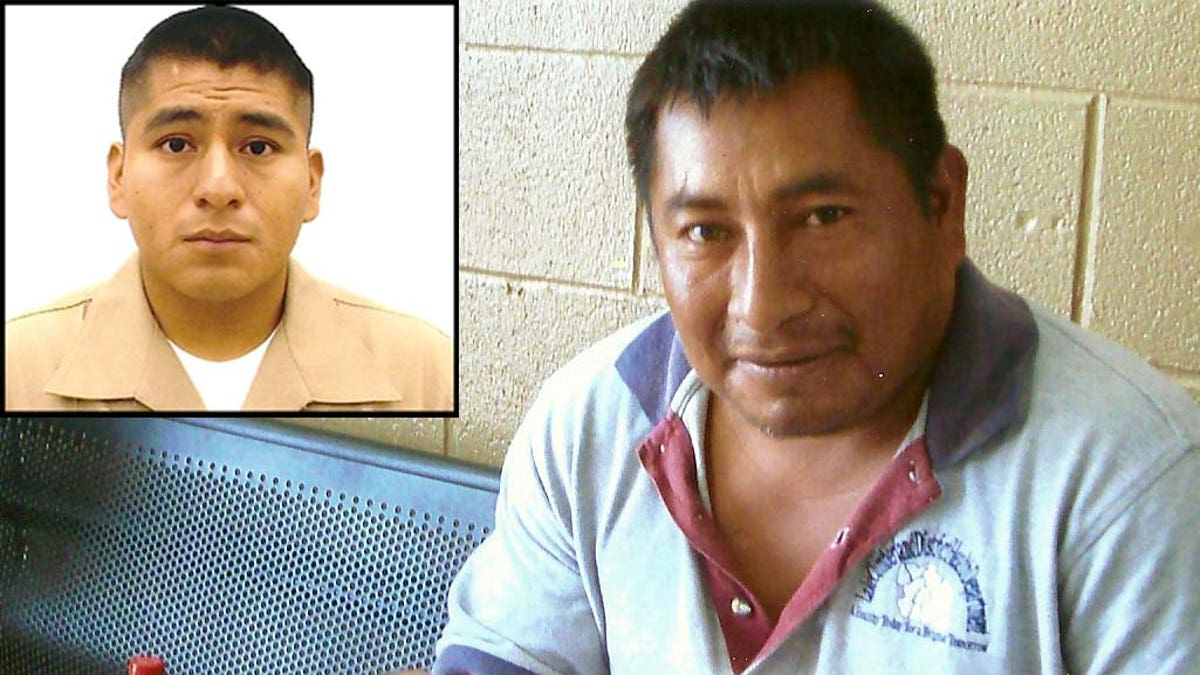
In a deportation case followed around the country, Juan Andres, the father of a U.S. Marine assigned to duty in Afghanistan, was deported back to his native Guatemala.
Juan Andres, 41, had fought deportation by presenting immigration officials with letters from friends, an employer, his wife and his five children, all of whom are U.S. citizens, including Lance Cpl. Aspar Andres.
His Marine son also made a public plea, while on leave from his base in Hawaii in anticipation of his 2011 deployment, asking immigration officials to show leniency for his father.
“I feel like that if I am serving this country, at the very least I should be able to come home and see my parents and my family,” Aspar Andres, 21, said to Fox News Latino in December. “Coming back home and not seeing my father – it just would not be the same.”
Juan Andres had worked for years on Kentucky farms with his family.
“He taught me that if you want something, you go for it, and you work hard at it,” said Aspar. “He was very proud of me being a Marine, and is supportive of everything I do.”
Juan Andres, who first came to the United States as a teenager, was deported Thursday after his request to appear before a judge was denied, Gail Montenegro, a spokeswoman for U.S. Immigration and Customs Enforcement, said Monday.
Andres was first deported to Guatemala in 1995 following a conviction on a federal charge of alien smuggling, then later illegally re-entered the U.S., she said.
"If an alien illegally re-enters the United States after having been deported, the prior removal order is reinstated, and the case is not subject to being reopened or reviewed," Montenegro said in an e-mail statement. "Therefore, Mr. Andres' request to appear before an immigration judge was denied."
Juan Andres’s attorneys, Ron Russell and Becca O’Neil, both acknowledge that Andres came into the United States illegally 25 years ago. But they still requested that the government grant him leniency, citing his good moral character and his son’s service in the Marines.
"He's a very strong family man, someone who was respected in his community," Russell said in a phone interview. "... It was a case that warranted an exercise of discretion because his son is facing deployment to Afghanistan."
Russell said the deportation could be demoralizing for those in the armed services who have family members illegally in the U.S.
He said "it would not harm our country's interests" to allow Andres to remain in the U.S. while his son fights for it.
"I can't imagine the conflicting feelings that a soldier who is going to be deployed or is deployed in a combat situation wondering, 'Why is my country treating my family member in such a manner?'" he said.
On Dec. 9, Juan Andres accompanied a friend who does not speak much English to the U.S. Immigration and Customs Enforcement (ICE) office at the Gene Snyder U.S. Courthouse and Custom House in Louisville, KY. His friend was trying to post a bond for another individual.
Intending to help out, Andres instead found himself handcuffed and detained after being asked for his own identification papers.
“The way the officer saw it, he was just doing his job. He is not the supervisor there; we have been unable to reach the supervisor directly,” O’Neil said in December.
Russell said he had hoped to persuade a judge not to reinstate Andres' removal order, or at least grant a stay of removal. To have been granted a "green card" or permanent residency, something his wife has, Andres would have been required to prove to the judge that he is of good moral character, has been in the country for 10 years and that deportation would create a hardship for his family.
Russell said he was confident he could have proven all those standards.
"His reputation was excellent," he said.
Montenegro said immigration officials followed one of their main missions — "to identify and remove convicted criminal aliens."
The Associated Press contributed to this article.
Follow us on twitter.com/foxnewslatino
Like us at facebook.com/foxnewslatino






































